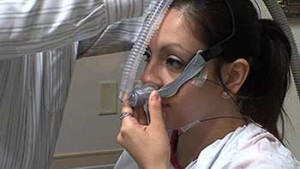Snoring is not the only reason that a person should have a sleep study completed. There are many other signs that will let you know if you should have a sleep study completed. If you or your physician feels that a sleep study is needed, the process is easier than you may think.
 Per the National Institutes of Health, there are an alarming number of Americans that suffer from some type of chronic, long-term sleep disorder every year. There are at least 40,000,000 Americans each year suffer from these disorders and then there are another 20,000,000 that have sleeping problems from time to time (http://www.ninds.nih.gov/disorders/brain_basics/understanding_sleep.htm).
Per the National Institutes of Health, there are an alarming number of Americans that suffer from some type of chronic, long-term sleep disorder every year. There are at least 40,000,000 Americans each year suffer from these disorders and then there are another 20,000,000 that have sleeping problems from time to time (http://www.ninds.nih.gov/disorders/brain_basics/understanding_sleep.htm).
Sleep disorders can have many effects on your health and well-being. If you do not sleep properly at night, it is going to affect your home life, work life, driving patterns, and social relationships. You are not going to feel like yourself when you are sleep deprived and you may not even realize it.
Untreated sleep disorders can lead to many life-long health problems, such as high blood pressure, heart disease, stroke, diabetes, sleep apnea, mental health problems, and your general well-being. Besides the medical problems that can result from being sleep deprived, you are also not as productive, which could lead you to possibly losing your job or family and friends. Per the National Highway Traffic Safety Administration, more than 100,000 car crashes are caused by drowsy drivers every year http://www-fars.nhtsa.dot.gov/Main/index.aspx).
There are more than 70 different types of sleep disorders that one may suffer from. Most of these sleep disorders can be managed effectively once they are diagnosed by a physician. With the different sleep disorders, you can get too little sleep, too much sleep or do not get quality sleep. Many people do not even realize about their sleep patterns but you need to be aware of the signs, so your sleep disorder can be diagnosed and treated properly.
When to Talk to a Physician about Your Sleep Patterns
There are many signs out there that will tell you that you need to speak to your physician about your sleep patterns. Once you talk to your physician, he or she will be able to help you decide what your next step needs to be. Some of the things you need to look for include:
- Difficulty getting to sleep
- Not being able to stay asleep for long periods of time
- Snoring
- Pause in breathing or gasping for a breath when you sleep
- Tired when you wake up, feeling like you cannot function
- Fatigue that lasts for weeks at one time
- Legs that feel active when laying down at night
If you have any of these problems, you should seek advice of your physician. If your physician sees that the problem really does exist and there is nothing he can help you with, he will refer you to a sleep specialist.
Sleep Specialist
You should not be alarmed if your physician refers you to a sleep specialist. The sleep specialist will evaluate you and your sleep patterns to see how they can help you best get the good night of sleep that you deserve. After you have been evaluated from the sleep specialist, you will most likely need to have a sleep study completed. This is where the specialist can really see what your sleep patterns really are like.
Sleep Study
 For the sleep study, you will have to come into the office for a one night study. The study will painlessly measure your sleep patterns. The sleep study will be able to track your brain wave activity, eye movement, muscle tone, heart rhythm and breathing. When you have the sleep study, you need to try your best and sleep just like you normally do when you are at home. Depending on the results, you may be given either medication, oxygen or a CPAP machine. For most snorers, a mouthpiece like the ZQuiet or the popular Good Morning Snore Solution will be recommended. For those with severe snoring issues, a CPAP machine is the device that will most likely be given to you to use.
For the sleep study, you will have to come into the office for a one night study. The study will painlessly measure your sleep patterns. The sleep study will be able to track your brain wave activity, eye movement, muscle tone, heart rhythm and breathing. When you have the sleep study, you need to try your best and sleep just like you normally do when you are at home. Depending on the results, you may be given either medication, oxygen or a CPAP machine. For most snorers, a mouthpiece like the ZQuiet or the popular Good Morning Snore Solution will be recommended. For those with severe snoring issues, a CPAP machine is the device that will most likely be given to you to use.
Treatments
There are several different conditions that may be diagnosed from the sleep study. You need to take everything the doctor tells you seriously. You may be prescribed medications or given a device such as a CPAP or a night time oral dental appliance that will help to reduce your snoring or sleep apnea. The doctor may also suggest things that you can do to improve your sleep patterns, such as improving your diet, keeping bedtime routines, getting correct exercise, and sleeping in a dark and quiet room. Whatever the doctor suggests, you should seriously take his advice and try it out.
Continuation of Treatment
Just because you have had one visit with the specialist and have been prescribed what to do, you still need to make sure that you keep following up with the doctor. Follow-up treatments are very important. Once you change some things up, you may be surprised how well you start having quality sleep.
If you have been prescribed with a CPAP machine, it is especially important that you use the machine every night and keep up with the follow-up appointments on a regular basis. You have been prescribed the machine because you are not breathing properly at night. The machine may need to be adjusted from time to time, especially at first. It is also important that you ask questions and concerns with the sleep specialist so you can get the best use out of your machine.
Conclusion
If you feel like you are having problems with snoring and/or getting a true night’s sleep, you need to talk to your physician as soon as possible. It is imperative that everyone gets a full night’s sleep that is quality in nature. Many health hazards can occur because of not getting the sleep you deserve and need. The sleep studies are very easy to do and you will be surprised how well the results will turn out if you have to start using a CPAP machine to help you sleep better at night. Close to 70% of Americans say they experience frequent sleep problems and there is no reason for this. With the proper diagnosis and treatment, you will feel better in no time. It is estimated that 90% of sleep study patients will get better sleep with the use of treatments.
